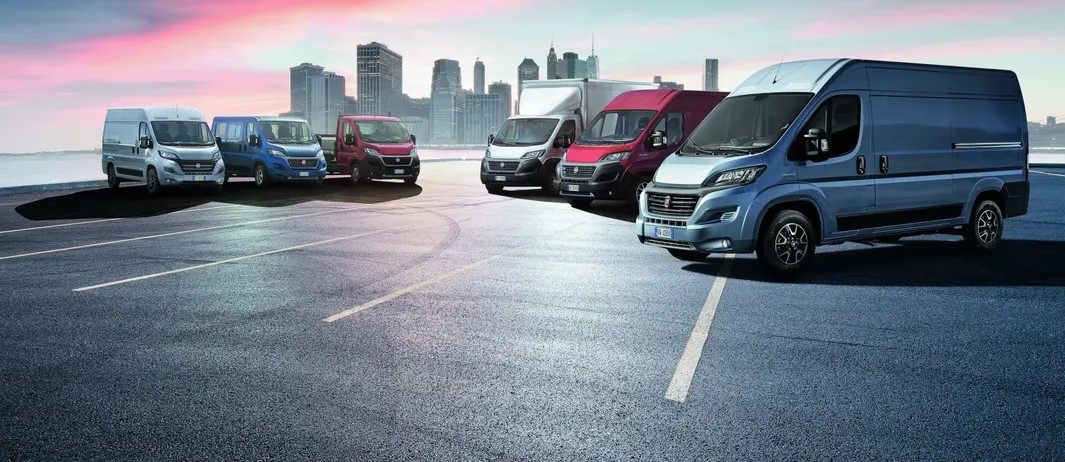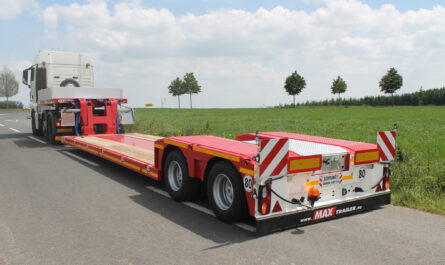The transportation of people and goods forms the backbone of commerce in any modern economy. With increasing industrialization and globalization, the role played by commercial vehicles in enabling efficient transportation has become more important than ever. In this article, we will explore the various types of commercial vehicles, their functions, and significance in today’s world.
Types of Commercial Vehicles
There are several types of commercial vehicles that serve different purposes in transportation. Let’s take a look at some of the major categories:
Light Commercial Vehicles
Light commercial vehicles (LCVs) include pickup trucks, vans, and mini trucks that are used to transport limited cargo or a small number of passengers. Weighing less than 3.5 tons, LCVs are smaller and lighter than heavy commercial vehicles. They are commonly used by small businesses, service providers, and non-profits to transport equipment and staff. Popular LCV models include the Ford Transit, Toyota Hiace, and Renault Trafic.
Heavy Commercial Vehicles
Heavier than LCVs, heavy commercial vehicles (HCVs) include trucks, buses, and specialized vehicles designed to transport large volumes of cargo or many passengers over long distances. Weighing more than 3.5 tons, HCVs transport cargo in various industries like manufacturing, construction, oil and gas. HCV types include semi-trailer trucks, fixed-platform trucks, tankers, dump trucks, concrete mixers, and refrigerated trucks. Popular models are Tata LPT 3518, Ashok Leyland Stile, Volvo FH, and Mercedes-Benz Actros.
Special Purpose Vehicles
Some commercial vehicles serve very specific functions and are designed accordingly. These include specialized vehicles like garbage trucks to transport waste, fire trucks for fire emergencies, ambulances for medical transport, cargo trailers for container shipping, and more. Features of these vehicles are customized for their intended use.
Functions of Commercial Vehicles
Commercial vehicles play a vital role in facilitating the transportation of goods and services. Let’s look at their main functions:
Transportation of Raw Materials
Whether it is coal, iron ore or petroleum – commercial vehicles are used extensively to transport raw materials from production sites, ports and storage depots to manufacturing and processing facilities across industries. This ensures continuous supply of inputs for production.
Distribution of Finished Goods
After production, Commercial Vehicles enable efficient transportation and doorstep delivery of finished goods to business clients, retailers, and final consumers. This includes delivering items like electronics, garments, food products, industrial equipment and more.
Logistics and Supply Chain Management
Modern supply chain networks rely heavily on optimized transportation through commercial fleets to receive, store and dispatch inventory within stipulated timeframes. This ensures seamless movement of goods and on-time deliveries across the supply chain.
Passenger Transportation
Buses are a huge part of public transportation systems in cities and inter-city routes, conveying millions of passengers every day. School buses, coaches and employee shuttles also use commercial fleets for group transportation needs.
Waste Disposal and City Services
Special purpose vehicles in municipal and city services including garbage trucks, sewer cleaners,street sweepers aid in maintaining civic hygiene and infrastructure on a daily basis through waste collection and disposal.
Significance of the Commercial Vehicle Sector
The commercial vehicle sector plays a significant role economically as well as in supporting other industries and services:
Economic Impact
As one of the largest contributors to the transportation industry, commercial vehicles account for a sizeable share of manufacturing output, exports, domestic sales and employment opportunities across the automotive value chain.
Backbone of the Manufacturing Sector
Timely transportation of raw materials and distribution of finished goods is crucial for the manufacturing industry. Commercial fleet operations enable just-in-time delivery required by modern manufacturing processes.
Reduces Logistics Costs
Optimized transportation fleet management helps companies reduce operational costs associated with warehousing, storage and fuel usage compared to multiple small vehicles.
Supports Critical Services
Services like emergency response, municipal works, postal and cargo delivery rely heavily on special commercial vehicles to function smoothly.
Environment Friendly Technologies
With growing focus on sustainability, commercial vehicles are increasingly adopting cleaner technologies like CNG, electric and bio-fuel models in city operations.
As populations and economies continue to expand globally, the demand for seamless transportation of people and goods will also increase multifold. This ensures commercial vehicles remain an integral part of modern infrastructure and business operations for the foreseeable future. Sustained investment and innovation in this sector will be important to harness new opportunities.
*Note:
1. Source: Coherent Market Insights, Public sources, Desk research
2. We have leveraged AI tools to mine information and compile it




